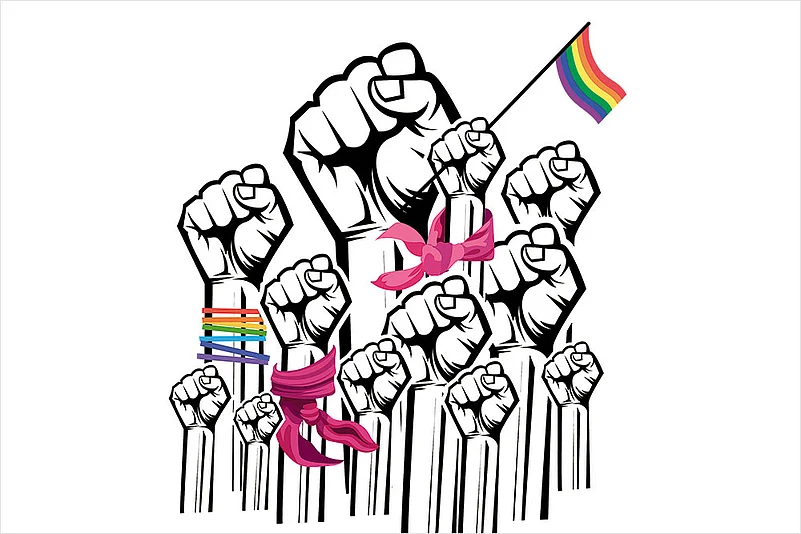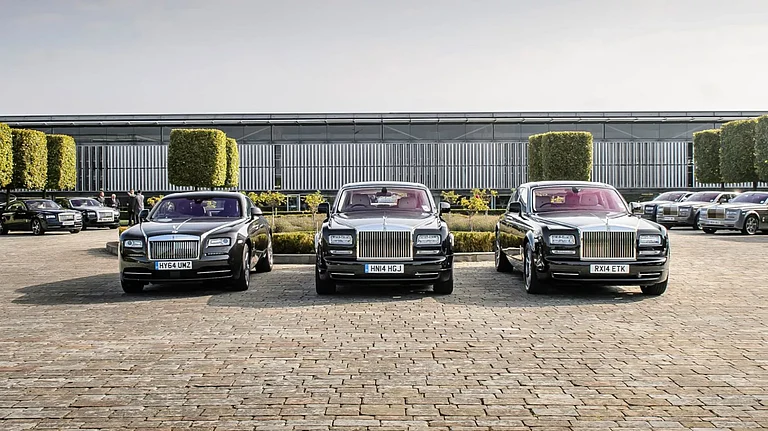In the 2000s, Uma Maheshwari used to work at a private bank. She quit her job in 2010, when her two children were just 12 and nine years old. “Two children are quite a handful,” she says. As her children grew older and independent, Maheshwari felt she was ready to get back to work. She approached HerKeyjobs—an organisation that helps women return to the workforce after a break.
They helped Maheshwari land an interview with a private bank five years after she had taken a break from her banking career. What helped her get back to work, she says, are diversity, equity and inclusion (DEI) initiatives employed by companies during hiring.
DEI, once conceived as the potion meant to treat inequalities, is going through a bit of a rough phase of late. In January this year, American billionaire Bill Ackman wrote on X, “DEI was inherently a racist and illegal movement even though it claims that it works on behalf of the oppressed.” Tesla chief executive Elon Musk shared Ackman’s post on X.
Since then, Tesla has omitted mention of outreach to minorities in its 10-K filings made before the Securities and Exchange Commission. Form 10-K is an annual report filed by American companies detailing their financial performance.
The pushback against DEI by American billionaires is because it’s very premise is perceived to be discriminatory. Musk noted that “DEI is just another word for racism. Shame on anyone who uses it.” DEI, they argue, discriminates on the basis of ascribed identities, seen as being both immoral and illegal in the US that has a long history of equal rights activism.
That stands in contrast to how India Inc. is approaching DEI. Data from the 30 biggest and most actively traded companies listed on the BSE shows women make up 22.6% of the workforce in these companies and make up 15.28% of board of directors and key management personnel, figures that are not ideal but are incremental. Other genders—meaning people who do not identify as either male or female—comprise 0.6% of the workforce in BSE30 companies.
Good for Business
Experts say DEI is great for business, and organisations need to strike the right balance in optimally harnessing it to gain competitive edge. Policies around DEI should be tailor-made to suit the unique needs and cultural contexts of the workforce, says Judy Manjlekar, director of people and culture for India and the Asia-Pacific region for Technip Energies, a French engineering and technology company.
A study by Aon and Nasscom titled The DEI Landscape in India Inc.: Bridging the Gap between Rhetoric and Reality published in June 2023 states DEI is a “strategic business imperative” and not merely a “nice to have initiative”. The study, which also included a survey, found that 95% of the 224 people surveyed said DEI makes business sense and aligns with wider expectations regarding the moral imperative to comply. A 2020 McKinsey report found more diverse companies were more likely to outperform their peers in terms of profitability.
Hardeep Singh Puri, Union urban development minister, wrote on X in December 2020 citing a McKinsey estimate that empowerment of women and gender parity is expected to add up to $700 billion to India’s gross domestic product (GDP).
The 2020 McKinsey study, cited by Puri, titled Diversity Wins: How Inclusion Matters, found: “Companies in the top quartile of gender diversity on executive teams were 25% more likely to experience above-average profitability than peer companies in the fourth quartile. This is up from 21% in 2017 and 15% in 2014.” The study also found that the higher the representation of diverse groups, the higher is the likelihood of their outperformance.

India Inc. Dials DEI
“By opening up opportunities to a more diverse pool of candidates, companies can tap into a wider range of skills and expertise, which can enhance their overall talent pool,” says Jaya Singh Panda, chief diversity officer at Tata Steel. The company has undertaken two initiatives—Women@Mines and Tejaswini 2.0—to train women workers in core mining jobs and increase deployment of women as an integral part of the workforce respectively.
The company has on-boarded 100 women as heavy earth-moving machinery (HEMM) operators. “Having better gender diversity among front-line professionals can also help companies enhance productivity, innovation and creativity, improve customer focus and improve risk-management capabilities. All these factors can contribute to better financial performance and business success over the long term,” Panda says.
Similar initiatives have been taken up by businesses across sectors. In the hospitality sector, for example, DEI is fundamental in shaping organisational culture as well as the guest experience, says Akshay Tyagi, head of diversity, equity and inclusion at The Lalit Group, one of India’s largest five-star hotel chains. Tyagi says a diversified workforce fosters innovation and helps cater to the diverse needs of guests.
“Our current workforce has over 200 LGBTQIA+ [lesbian, gay, bisexual, transgender, queer, intersex, asexual] team members, 150 people with disabilities and 15 acid attack victims. We also work with people from neuro-divergent communities under a dedicated project [called] Apna Heera which attempts to create an ecosystem for people with learning difficulties, autism, cerebral palsy and ADHD [attention deficit hyperactivity disorder],” adds Tyagi.
A 2022 Wellbeing Programmes India Survey of 210 employers in India found that 71% organisations were offering DEI initiatives related to inclusion and diversity, 71% had accessible office spaces, 71% had gender-neutral office communication and 62% had inclusive benefits including programmes targeted towards lifestyle, health and well-being of employees, their spouses or parents.
Organisations that prioritise DEI have employees who are nearly 2.4 times less likely to quit, according to BLISS (Bias-Free, Leadership, Inclusion, Safety and Support) Index, a matrix developed by BCG, a consultancy. Companies with DEI initiatives attract diverse talent, improve employee morale and productivity and boost innovation through cross-pollination of ideas, BCG found.
“For Gen Z and millennials, diversity, equity and inclusion are critical factors at work. It is therefore imperative that organisations ensure the same so that they can hire and retain the right talent,” says Roshni Rathi, managing director and partner at BCG. Diversity and inclusion in senior management roles reflect better decision-making. When senior leaders are committed to DEI in an organisation, nearly 84% employees would want to be retained, she says.
Long Road Ahead
While India Inc. has been focusing on DEI, much remains to be done in terms of achieving a demographic balance. Of the 220 companies that participated in the Aon and Nasscom survey, 98% companies across 14 industries track gender representation, but only 19% companies tracked other marginalised groups and 9% tracked neurodiversity.
“Gender is at the forefront for most organisations when it comes to diversity and inclusion initiatives. Many organisations look at either disability or LGBTQIA+ or both. Then there are nascent dimensions of diversity such as caste. Microsoft, for instance, has started having internal conversations around caste. The vocabulary for how to include these dimensions of diversity given their sensitivity is the next frontier that people are talking about,” says Rathi.
There were no disabled members among the board of directors or key management personnel in BSE30 companies, according to data compiled by Complykaro.com at the end of the financial year 2023. More than 50% of disabled employees in BSE30 companies work in three public sector undertakings (PSUs), according to Complykaro, a firm that provides legal services. Unlike the private sector, public sector firms in India reserve jobs for the disabled.
DEI initiatives have a direct impact on attrition. BCG's Rathi says studies conducted by the consulting firm found employees who experience, or witness discrimination are 1.4 times more likely to quit their jobs compared to others.
“Data shows persons with disabilities are one-and-a-half times more likely to experience discrimination. Nearly 60% trans employees in India say they have been referred to by the wrong gender, faced microaggressions at work and expressed that sharing their gender identity has hurt their careers. India is lagging on many of these parameters,” she says. The success of DEI initiatives in India depends on tailoring diversity, equity and inclusion efforts to address challenges specific to the Indian context. Social dynamics at play often get mirrored at the workplace. It is critical that companies address the intersectionality of identities.
Tata Steel’s Panda says the company started its diversity journey through efforts solely targeted at women but then expanded it to include tribal communities, the LGBTQIA+ and persons with disabilities in some of the remotest corners of India where such opportunities have been historically restricted. It is also crucial that companies localise their DEI initiatives to align with diverse backgrounds and values of employees.

ESG-DEI Tie
DEI initiatives have gathered more steam since they started being seen in harmony with environmental, social and governance (ESG) parameters. Both DEI and ESG are aimed at fostering a sustainable environment, creating a sustainable workforce and building a sustainable governance structure. ESG and DEI often traverse similar elements.
The ESG parameters delineated by the Securities and Exchange Board of India under the Business Responsibility and Sustainability Reporting (BRSR) standards include both inclusive development as well as measures of diversity.
According to the BRSR, companies are required to disclose their contribution to inclusive development by sharing data around creation of jobs in smaller towns and the percentage of input material procured from micro-, small- and medium-enterprises. Companies will also need to disclose wages and salaries being offered to different genders and the creation of infrastructure for persons
with disabilities.
The 2023 Aon and Nasscom report says a lot remains to be done to ensure inclusion, equity and harness the diversity of the workforce as only 53% of 224 firms included in the study conduct DEI audits to ensure gender-agnostic policies, only 25% provide upskilling opportunities and a mere 31% companies carry out pay equity analysis. Transparency in execution and reporting remains crucial.
American debates around DEI are seen to be weighing options around whether it is an appropriate way to address representation of diversity in the workforce. The discussions around it in India Inc. are still nascent, especially with representation from backward castes and regions. Many of the DEI initiatives in India run the risk of degenerating into tokenism. Whether the discussions will mature and become more inclusive depends on the stakeholders. That’s a story for another day.


























